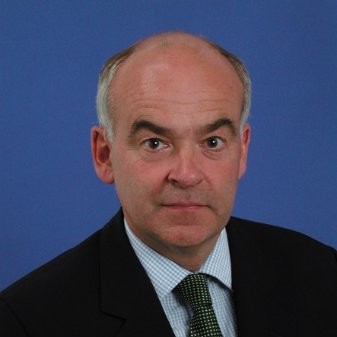University Alumni vs Corporate Alumni: What Enterprises Need to Know
Explore how corporate alumni differ from university alumni and why companies rely on alumni networks for recruiting, business development and...
Read more
The former Managing Director in Citibank’s Corporate and Investment Bank shares his experiences building the company’s EMEA alumni program.

As a self-confessed alumni evangelist, I feel duty bound to champion the benefits of alumni networks. The only caveat is that these thoughts come largely from my own personal experiences over five years setting up Citi’s EMEA program. Rose-tinted, positively biased and hugely supportive.
For many companies, alumni networks are one of the most under-realised and under-used assets. That’s evidenced by the fact that current take-up and investment in alumni programs is woefully lagging. For instance, when looking at FTSE 250 companies, my rough estimation is only 25% have mature programs that have been running more than a year. One big missed opportunity.
So what can I do to convince the fence-sitters ?
Well, let me highlight the myriad of benefits. For simplicity’s sake, these are best bucketed into three categories of talent acquisition, business development and brand advocacy.
Although I am not a proponent of housing alumni development in HR departments (in my opinion, this should be a front-of-office role championed by the CEO’s office or Head of Marketing), I fully recognise that one of the strongest motivations for having such a program is often talent acquisition. Re-hires, or “boomerang hires”, save on recruitment fees and time to productivity.
In Citi’s case, after scrubbing down the numbers, we ascertained that around 10% of the then 32,000 Citibankers working across EMEA, had left and returned. We then calculated that the cost save was between $50,000 and $75,000 per returner.
So we’re talking substantial amounts. By attracting returners through the alumni network, rather than external recruitment agencies, the cost-savings are enormous and the vetting procedures almost fail-proof. You already know the star-performers versus those who left with cause.
On productivity, former employees return “all eyes open” and are generally like-minded and culturally attuned. All companies have their quirks and challenges but rehires, by their very nature, have realised the benefits and attractions of returning rather than staying with the competition or pursuing other options. They appear happier and perform better, which means they also tend to stay longer (second time around) than stranger hires.
The hardest part of being a new employee is building relationships. For boomerangs, familiarity is comforting. Knowing the organizational structure and how teams work, can make it relatively seamless. Returners on-board and reintegrate quicker. They already have their networks and better understand the modus operandi, legacy and even the acronyms.
They also often return wiser (with expanded skill-sets) from their outside experiences and most probably will have grown and adapted to changes. My advice would be to value their experience from the outside world. What better way to show employees past and present that you care, than by staying in touch after they leave. To make them feel supported and to provide the ability to network and the chance to interconnect and return.
While the recruitment benefits shouldn’t be missed, the “holy grail” (for me as a banker) was always business referrals and increased customer activity. Along with being extended family, we looked to alumni for business development, as potential users of products (cards and mortgages) and clients of the investment bank. So I scored myself against the number of enquiries received from former colleagues and the opportunities for revenue generative events which could offer leads and transactions.
To be clear, it’s never the role of alumni development teams to embark on heavy sales pitches but rather to sell engagement. To ensure that, where possible, we were being approached on pitches or asked to provide advice. Alumni understood where best Citi could help them and often had the same enthusiasm to make sure any implementation runs smoothly. There’s added pressure to perform (on both sides) but along with that comes invaluable alumni support and shared insights too. With alumni involved, you find a higher win rate.
To quantify the potential impact, one such capital raising more than covered my alumni team’s aggregated costs for the five years of my involvement. Same goes for the referrals produced by the retired partners of legal and consulting firms. Networks and contacts remain invaluable for generating business and strengthening relationships.
Finally, alumni can be an enormous help as brand ambassadors. They’re normally pulling and rooting for you. I experienced that first-hand when they wanted (even demanded) Citi to come through the Global Financial Crises. Many of our senior alumni had had long and varied careers within the business and they had their own personal branding tied up in the success of ours. They wanted to help. Alumni will talk nicely about you in their social circles. They’re more likely to buy your products. Nurture the relationships and alumni can be creators of enormous goodwill.
Along with that goodwill comes an abundance of other contributions from volunteering to mentoring and training. Four out of the first five lecturers we attracted to our “Proud 2B a Banker” series came from alumni and that resonated with the existing analyst network. Training and career development sometimes seems more tailored and suited when coming from alumni rather than consultants and their desire to put-back is motivational and enthusing for all concerned.
Of course, there were the informal alumni groups already in place, such as the aptly-named “Citi-bonkers” and “Mis-FITS” (which stood for Financial Institutions and Treasury Services). Nuanced, close-knit and certainly offering fun, it was always our intention to compliment not cannibalise them. But we also realised a more official network was needed and it worked from the get-go. The single source of truth and control, housed under one roof, always appeals to one’s legal department too. That way you can stay consistent with the brand and maximise the outputs.
Much is changing in today’s world. Not all organizations are suited to having such a program and not all programs have the necessary champion, defined objectives and appropriate budgets and platform, to flourish. But you can only fine-tune after pressing go in the first place. We did and there’s been no looking back ever since. Give it a go!
Part 2: What are the Building Blocks of a Successful Corporate Alumni Program?
Richard is the former Managing Director in Citibank’s Corporate and Investment Bank and Alumni Director responsible for successfully building its EMEA alumni program, at the personal request of CEO post-2012. He has been Chief of Staff to two Vice Chairmen (former Dutch Minister of Finance and former Director General of the WTO) plus secretariat to several Advisory Boards, most recently at London Stock Exchange. He's the former MNTD of Citibank’s UK Pension Fund, a Fellow of the Royal Geographic Society and a graduate of Cambridge University onto whose Alumni Advisory Board he has also recently been appointed.
NEWSLETTER


Explore how corporate alumni differ from university alumni and why companies rely on alumni networks for recruiting, business development and...
Read moreDecember 9, 2025
Your focus should be on 'How' to launch a corporate alumni network, not 'If' - for its competitive advantage, insights and community building.
Read moreNovember 6, 2025
Wondering what an alumni is? Learn about how corporate alumni networks drive ROI, and why EnterpriseAlumni is the leading platform to build and...
Read moreOctober 21, 2025
Build new revenue streams, save on recruitment and enhance your employer brand, all through the power of alumni.